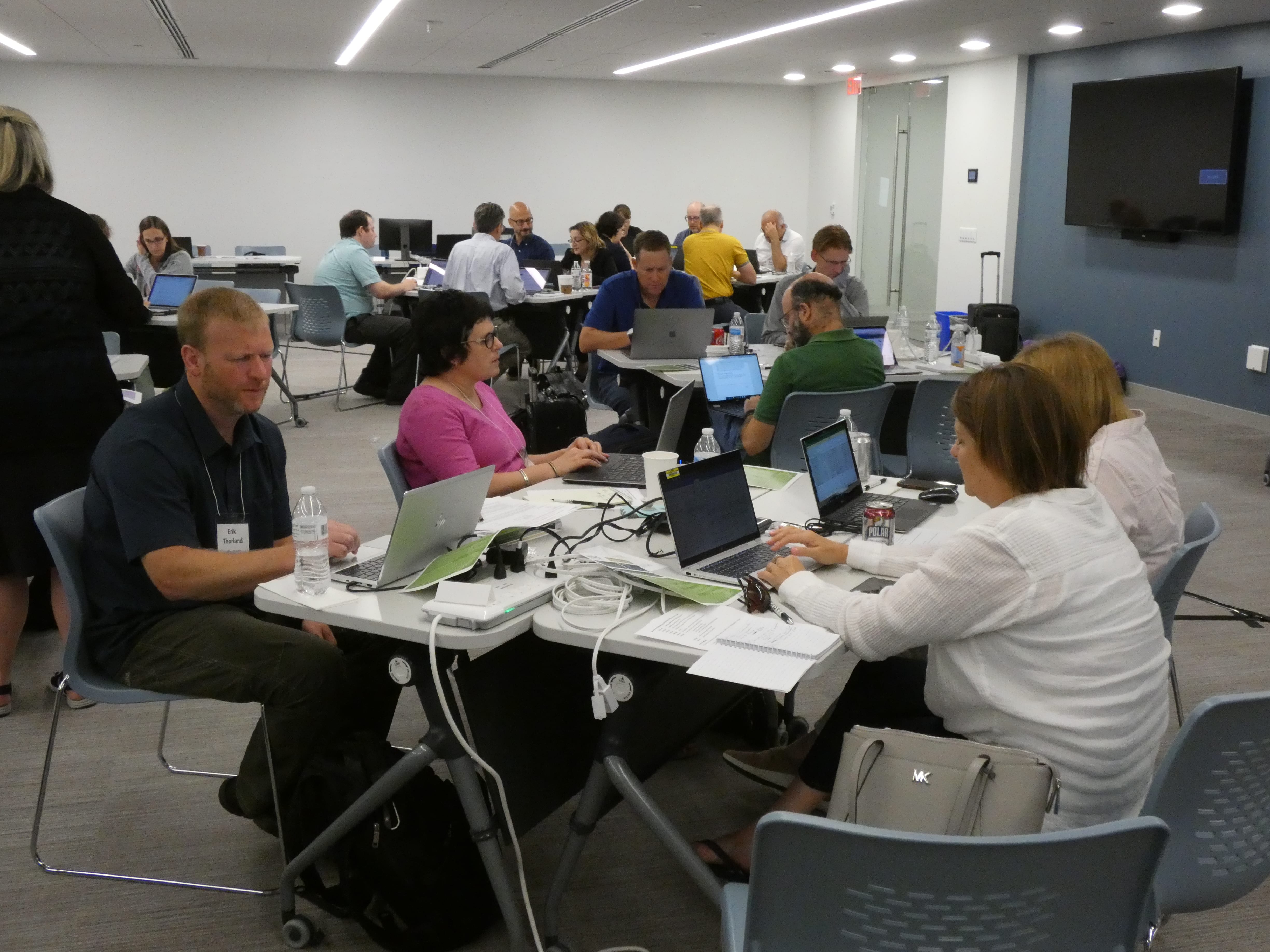Posted By: Dawn Allain, Member, 2019 Program Committee
As patients gain interest in understanding the impact of genetics on health, Genetic Counselors are becoming increasingly necessary in medical genetics and genomics practice. As a genetic counselor, I’m proud to serve on the ASHG Program Committee, and help select and shape Annual Meeting content to serve our genetic counselor members and attendees.
ASHG 2019 is the meeting for genetic counselors, and I’m excited to tell you why!

Cutting-edge Scientific Content
The value of attending ASHG starts with the scientific content. Exposure to the latest findings gives counselors the opportunity to engage and learn about new science before it makes its way to clinical care. This allows us to think about how it may be applied in a clinical or laboratory setting and consider impact on patient outcomes. At the ASHG meeting, clinicians and scientists can exchange observations and ideas that can lead to future research collaborators.
Who Should Attend?
Since ASHG covers a wide assortment of information, anyone in the field would benefit. But specifically:
- Genetic counselors with translation and industry roles would definitely benefit from access to basic research and clinical research findings, and interactions with the scientists and exhibiting companies involved.
- The Meeting is also great for genetic counselors who are educators, such as program directors or anyone who teaches.
- Finally, ASHG is great for new genetic counselors, so they can understand the interprofessional interactions that happen in genetics and genomics.
What Sessions to Attend?
If you’re a genetic counselor unsure where to start at ASHG, I’d say to start by attending the invited plenary sessions and workshops. Practicing counselors and educators may find the platform session, Strategies to Improve Genetic Counseling Practice and Education a stimulating series of talks, and I think research counselors will find the session, Research Participants’ Experiences and Preferences interesting.
This year’s joint session with National Society of Genetic Counselors (NSGC), called Achieving Successful Collaborations in a Research Setting, is perfect for counselors who are interested in becoming more involved in collaborative research. This should be an informative session and a great networking opportunity. I also recommend Clinical Spotlight: Novel Insights into the Genetics of Reproduction: Precision Medicine and Personalized Assisted Reproductive Technologies, and Clinical Spotlight: Basic Research to Clinical Implementation: A Multidisciplinary Overview of the Current State and Future Directions of Clinical Pharmacogenomic Testing.
Industry genetic counselors should check out Value Assessment of Genomic Testing from Diverse Stakeholder Perspectives in Health Services, and education-focused counselors should stop in on Addressing the Genomics Literacy Gap in Society: A Conversation about the How, What, Why, and Impact of Modern Educational Frameworks.
All genetic counselors can benefit from the session DNA in the Public Sphere: How Genomic Information is Used and Protected Outside of Research and Medicine. Finally, the presidential symposium is always thought provoking, and this year’s will be as well. The topic is genetic exceptionalism.
Networking Strategies for Genetic Counselors
Make sure you pick up your genetic counselor ribbon from ASHG Central in the Exhibit & Poster Hall! This helps other attendees identify you more quickly. Talk to poster presenters and make use of the Reception: Career Paths in Genetics. If you like to network online, you can also use #ASHG19 to find other attendees.
A longtime member of the Society, Dawn Allain, MS, CGC, is a member of the ASHG Program Committee and an Associate Professor in Internal Medicine at The Ohio State University.
